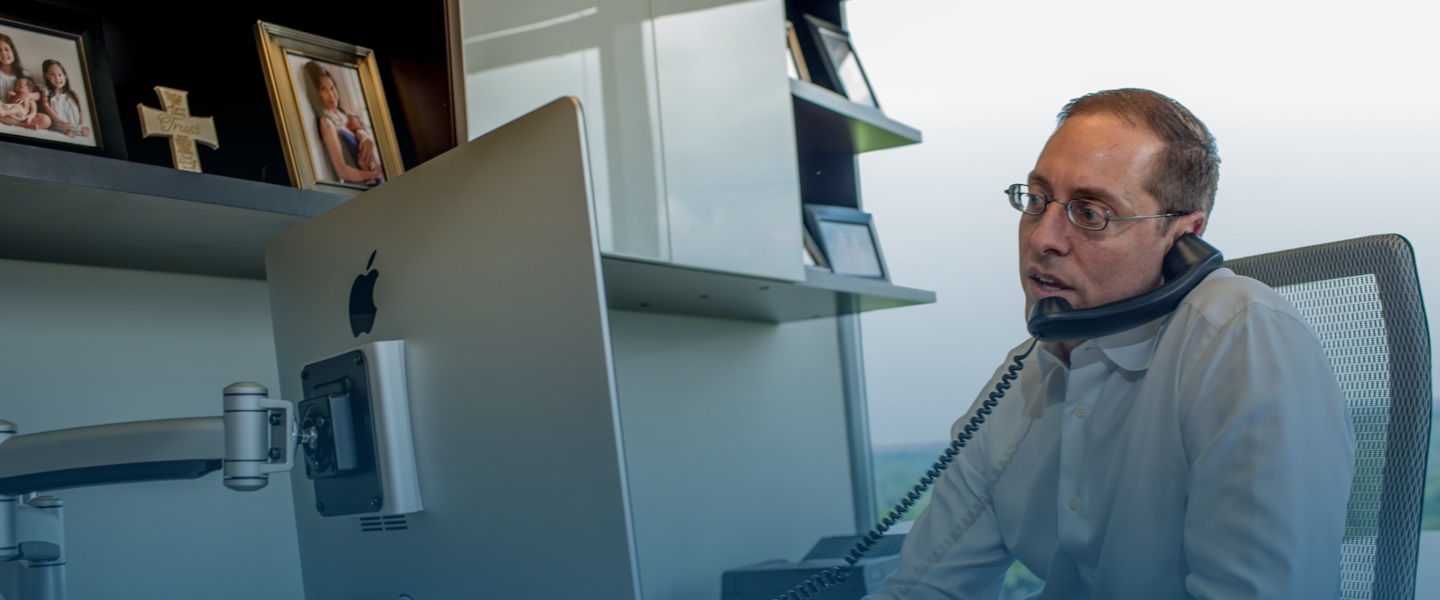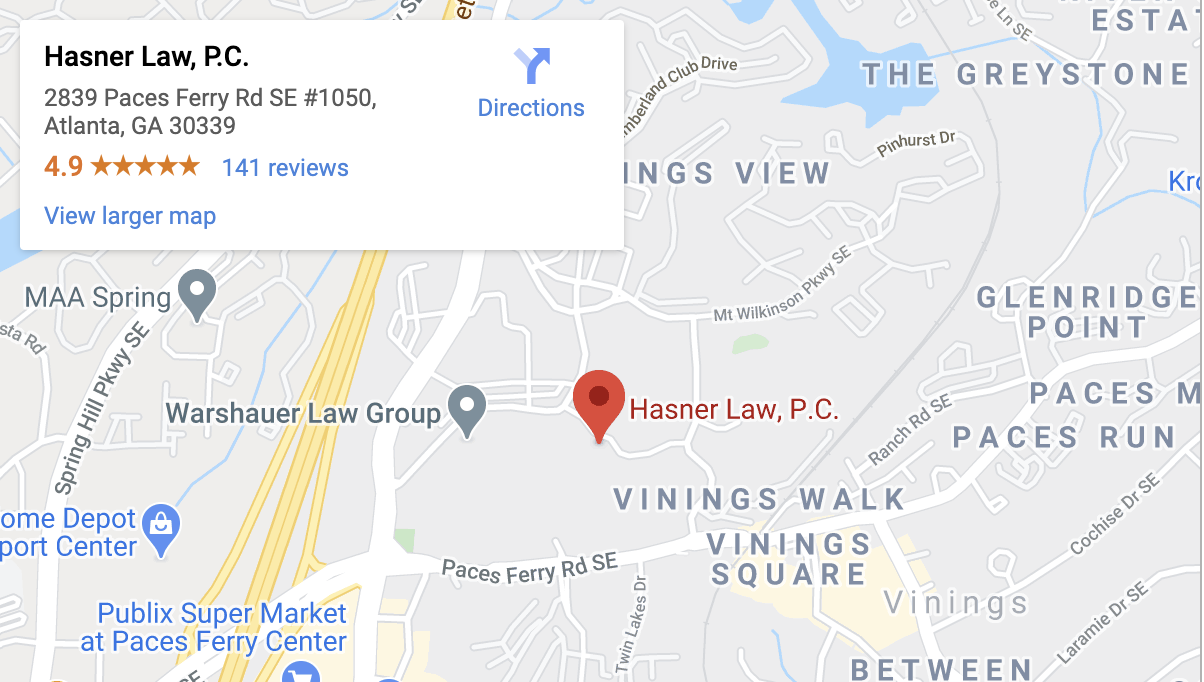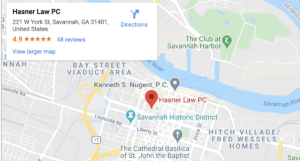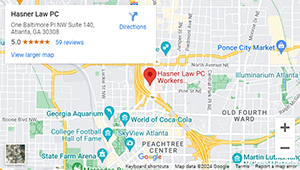Experienced Construction Accident Attorneys in Savannah, Georgia
If you were injured on a construction site in Savannah, a construction accident lawyer can help you pursue compensation through a workers’ compensation claim or a third-party lawsuit. These incidents often involve serious injuries, overlapping legal issues, and complex insurance matters. Georgia law provides specific legal options to help injured workers recover medical costs, lost wages, and, in some cases, additional compensation from liable third parties.
Hasner Law, PC, provides clear, factual guidance for construction workers, independent contractors, and their families on evaluating their legal rights after a job site injury.
We represent victims of accidents that often occur on construction sites. We explain the legal options available under Georgia law and outline the initial steps to take when a construction injury occurs. Each case is tailored to address your concerns, especially when you need legal assistance but are unfamiliar with how construction injury claims work or how to seek compensation.
Speak with a Savannah construction accident attorney today to learn your legal options. Hasner Law offers free consultations. We only get paid if compensation is recovered. Call (912) 234-2334 now to get started.
Savannah Construction Accident Guide
- Why Trust Hasner Law with Your Savannah Construction Accident Case?
- Compensation Available in Construction Accident Cases
- Types of Construction Accidents in Savannah
- Legal Options After a Construction Injury
- Filing a Personal Injury Lawsuit After a Construction Accident
- Steps to Take After a Construction Site Injury
- Contact a Savannah Construction Accident Attorney Today
- Frequently Asked Questions About Construction Accident Claims in Savannah
Why Trust Hasner Law with Your Savannah Construction Accident Case?
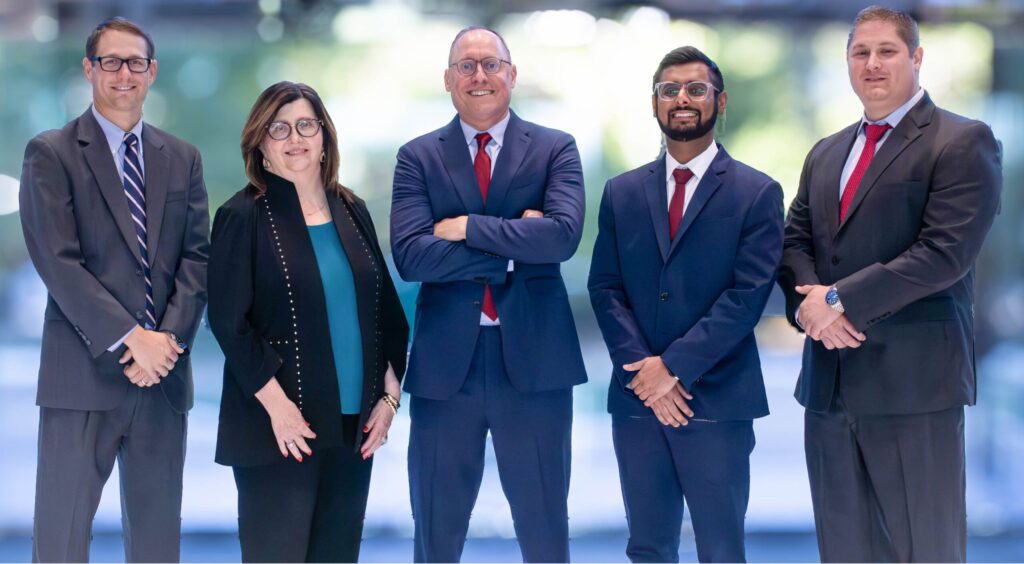
Proven Experience Handling Savannah Construction Accident Claims
Hasner Law has extensive experience representing injured workers in Savannah and throughout Georgia. Our law firm routinely handles cases involving workers’ compensation benefits, third-party liability, and disputed claims arising from construction site injuries.
Familiarity with Georgia Legal Procedures and Industry Experts
Hasner Law attorneys are familiar with local court procedures, administrative hearings before the State Board of Workers’ Compensation, and trial litigation involving contractors, subcontractors, and equipment manufacturers. Our attorneys and legal teams work closely with medical professionals, vocational experts, and industry safety consultants to build strong, evidence-based claims.
Results That Reflect a Commitment to Full Compensation
Hasner Law has recovered millions on behalf of Georgia workers through settlements, verdicts, and negotiated resolutions. These results reflect the firm’s commitment to full and fair compensation for every client.
Client Communication and Support Throughout the Case
Client feedback remains a core strength of Hasner Law. Prospective clients may review testimonials and case summaries to evaluate the firm’s approach to service, communication, and client support. Transparent communication and direct access to legal counsel ensure that clients remain informed throughout each case stage.
Free Consultations and Contingency-Based Representation
Hasner Law offers no-cost initial consultations and contingency fee arrangements for individuals injured in construction accidents. This structure ensures that legal representation is accessible to workers regardless of income or employment status.
Compensation Available in Construction Accident Cases

The type and amount of compensation available depend on the nature of the claim. Workers’ compensation benefits are generally limited to medical costs and partial wage replacement, while third-party lawsuits allow recovery for broader economic and non-economic losses.
Workers’ Compensation Claims for Construction Workers
Workers’ compensation serves as the first line of legal protection for injured employees in Savannah. Most construction companies in Georgia are legally required to carry this insurance if they have three or more employees, including part-time workers. Independent contractors may not be covered unless explicitly listed on the policy.
Key Benefits of Workers’ Compensation in Georgia:
- Medical treatment coverage. Injured workers can receive payment for doctor visits, hospital stays, physical therapy, and prescription medication, as long as they use authorized medical providers listed by their employer or insurer.
- Temporary Total Disability (TTD). If a worker cannot return to work due to an injury, TTD provides two-thirds of the worker’s average weekly wage, subject to the statutory maximum. As of 2025, this amount is capped at $800 per week.
- Temporary Partial Disability (TPD). If the injured worker returns to a lower-paying job during recovery, TPD benefits help offset the difference in earnings.
- Permanent Partial Disability (PPD). If the worker sustains a permanent loss of function, PPD benefits are calculated based on impairment ratings and statutory guidelines.
- Death benefits. Surviving dependents may be eligible for weekly benefits and funeral expenses in a fatal construction accident.
To qualify for benefits, the injury must be reported to the employer within 30 days of the accident. Failing to meet this deadline may result in the denial of benefits. The injured party must also seek treatment from the authorized panel of physicians that the employer or insurance carrier provides.
Employers or insurers may deny workers’ compensation claims for several reasons, including missed deadlines, lack of medical documentation, or allegations that the injury was not work-related. Legal representation can help challenge these denials and secure the benefits owed under Georgia law.
Construction Accident Personal Injury Lawsuits
- Medical Costs. Includes past and future treatment, surgeries, and medication.
- Lost Wages and Earning Capacity. Compensation for missed income and future loss of earnings.
- Pain and Suffering. Covers physical pain, emotional distress, and loss of enjoyment of life.
- Permanent Disability and Disfigurement. Assessed through medical testimony and supported by records.
- Loss of Consortium. In wrongful death or severe injury cases, spouses may claim loss of companionship or marital relationship.
Each category of damages must be supported by credible evidence, including medical documentation, tax records, employer statements, and witness testimony. Depending on the case strategy and level of cooperation from the involved parties, compensation may be awarded through a negotiated settlement or trial verdict.
Types of Construction Accidents in Savannah
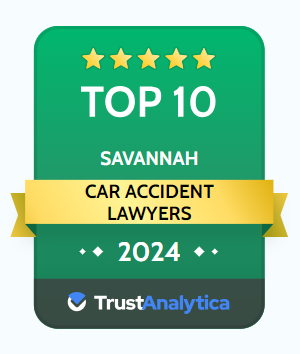
Construction work involves various physical tasks that often occur at height, around machinery, or in partially built structures. Even when employers enforce safety protocols, serious incidents occur on commercial and residential job sites. Injured workers may qualify for compensation regardless of who caused the accident, although legal options can vary depending on the circumstances.
Some of the most common types of construction accidents in the Savannah area include:
- Falls from scaffolding or ladders. These incidents frequently result in fractures, spinal trauma, or head injuries. Fall protection violations remain among the most commonly cited workplace safety issues by the Occupational Safety and Health Administration (OSHA).
- Trench collapses and cave-ins. Trenching and excavation accidents often occur with little warning. Workers caught in a collapse can suffer asphyxiation, crush injuries, or death.
- Electrocutions. Uninsulated wiring, overhead power lines, and faulty electrical systems on unfinished structures can expose workers to electric shock and burn injuries.
- Equipment accidents. Bulldozers, forklifts, cranes, and other heavy machinery can become hazards when improperly operated or maintained. These machines often cause crush injuries, amputations, or fatal trauma.
- Falling materials and tools. Even small hand tools or construction debris dropped from a height can cause head injuries or fractures when they strike workers below.
- Exposure to hazardous chemicals. Construction projects involving demolition, industrial chemicals, or hazardous materials may expose workers to toxic substances that cause respiratory harm or chemical burns.
Each accident scenario carries legal implications depending on whether the worker was covered by the employer’s workers’ compensation insurance and whether third-party negligence contributed to the injury.
Legal Options After a Construction Injury
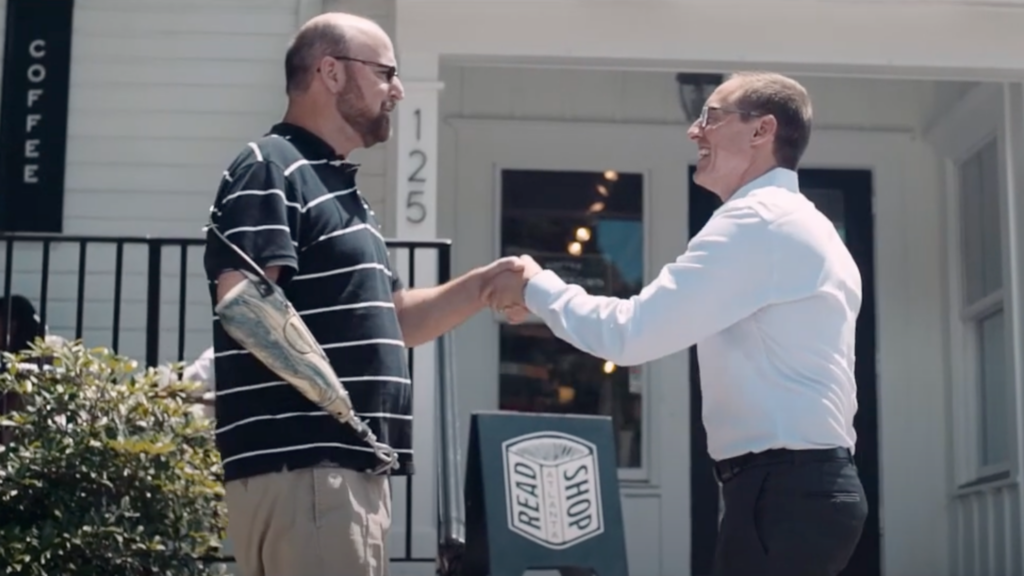
After a construction accident in Savannah, an injured worker’s legal options depend on who caused the incident and what insurance coverage is available. Georgia law recognizes two primary paths to compensation: workers’ compensation and third-party personal injury claims. Some cases involve both.
Workers’ Compensation
Most Georgia employers are required to carry workers’ compensation insurance. This system allows injured employees to receive medical treatment, partial wage replacement, and disability benefits regardless of who caused the accident. It does not require proof of fault but does limit the type of damages available. Pain and suffering, for example, are not recoverable in a workers’ compensation claim.
Third-Party Lawsuits
In cases where a party other than the employer, such as a property owner, subcontractor, or equipment manufacturer, was negligent, the injured worker may file a third-party personal injury lawsuit. These lawsuits allow for a broader range of damages, including pain and suffering and loss of earning capacity. To succeed, the injured party must prove that the third party’s negligence caused the accident.
Examples of Third-Party Liability Include
- A crane operated by a subcontractor malfunctions due to poor maintenance.
- A general contractor fails to follow OSHA safety guidelines, resulting in a trench collapse.
- A defective power tool explodes, causing burns or lacerations.
- A delivery driver unaffiliated with the worksite causes an on-site collision.
Georgia law permits filing a workers’ compensation claim and a third-party lawsuit when the facts support it. However, each claim follows a different legal process, with its own deadlines and evidentiary requirements. Proper legal guidance helps ensure that both claims are filed correctly and without delay.
Filing a Personal Injury Lawsuit After a Construction Accident

When a third party contributes to a construction accident, the injured worker may pursue a personal injury lawsuit and a workers’ compensation claim. This legal process involves several steps and requires proof that the third party’s negligent conduct caused the injury.
Key Features of Construction Injury Lawsuits in Georgia
- Legal Standard. The injured party must establish that the defendant owed a duty of care, breached that duty, and caused the resulting injury.
- Proof of Damages. Documentation such as medical records, expert testimony, and wage loss statements is required to support the claim for damages.
- Trial vs. Settlement. Most construction injury lawsuits are resolved through negotiated settlements. However, if the parties cannot agree, the case proceeds to trial in the appropriate Georgia civil court, such as the Chatham County State Court.
- Available Compensation. Unlike workers’ compensation, personal injury claims allow recovery for pain and suffering, emotional distress, diminished earning capacity, and full wage replacement.
Examples of third-party defendants in construction injury lawsuits include general contractors who fail to supervise subcontractors, manufacturers of faulty safety equipment, or property owners who fail to maintain safe premises.
Georgia follows a modified comparative negligence rule, which reduces compensation if the injured party is partially at fault. If a plaintiff is found to be 50 percent or more responsible, they are barred from recovering damages. Proper documentation, witness statements, and legal advocacy are often required to defend against contributory fault allegations.
Statute of Limitations and Legal Deadlines
Legal deadlines govern when a claim must be filed in Georgia. These time limits differ based on the type of case and the legal avenue pursued. Missing a statutory deadline may result in the forfeiture of the right to seek compensation.
Workers’ Compensation Deadlines
In Georgia, an injured construction worker must report the injury to the employer within 30 days of the incident. This report can be verbal or written, but must occur within the prescribed timeframe. If benefits are denied or delayed, the worker has one year from the date of the accident, or the last authorized medical treatment or indemnity payment, to file a formal claim with the State Board of Workers’ Compensation.
Personal Injury Lawsuit Deadlines
Georgia law imposes a two-year statute of limitations on third-party liability claims from the date of injury. This deadline applies to lawsuits filed against property owners, subcontractors, general contractors, and equipment manufacturers. If a fatality occurred, surviving family members have two years from the date of death to initiate a wrongful death claim.
Additional time limits may apply in cases involving government-owned construction sites. For example, if a municipal agency or school district is potentially liable, a formal notice of claim must often be submitted within six months. Legal representation can ensure that all procedural deadlines are met based on the case facts.
Steps to Take After a Construction Site Injury
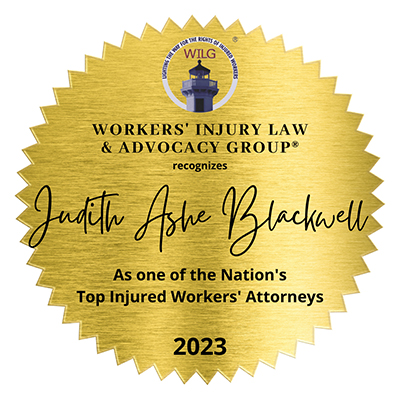
Actions taken immediately after a construction accident can affect legal outcomes and claim eligibility. In addition to seeking medical care, workers must complete several procedural steps to preserve their right to compensation.
1. Report the Injury to the Employer
The first priority is to notify the employer or supervisor. This notification must occur within 30 days to maintain workers’ compensation benefits eligibility. Reporting the incident promptly also creates a record that may support additional claims.
2. Seek Medical Attention from an Authorized Provider
In workers’ compensation cases, the injured party must obtain treatment from a provider listed on the employer’s panel of physicians. Treatment from an unauthorized doctor may not be reimbursed, unless it qualifies as emergency care or receives prior approval.
3. Document the Scene and Injury
Photos of the worksite, witness statements, and written records can support workers’ compensation and third-party claims. If equipment fails, preserving the defective machinery or tool may be necessary to prove liability.
4. Keep Track of Symptoms and Missed Work
Injury journals and wage statements provide evidence of pain, limitations, and financial losses. This documentation helps quantify damages in personal injury lawsuits and support ongoing benefit eligibility in workers’ compensation cases.
5. Consult with a qualified construction accident lawyer in Savannah
Construction accidents often involve multiple parties, insurance carriers, and procedural deadlines. Legal guidance ensures that both claims are filed correctly and supported with the required documentation.
Contact a Savannah Construction Accident Attorney Today

If you were injured while working on a construction site in Savannah, legal assistance may be available to help you pursue compensation for your injuries, lost income, and medical expenses. Hasner Law represents injured workers in Savannah, handling compensation claims and third-party personal injury lawsuits.
Call (912) 234-2334 today for a free consultation to explore your legal options. You won’t incur legal fees unless compensation is obtained. Get in touch with a Savannah personal injury lawyer directly or submit a request via the firm’s contact page to start the evaluation process.
Frequently Asked Questions About Construction Accident Claims in Savannah
What if my employer denies that the injury happened at work?
You may still be eligible for workers’ compensation if evidence supports your claim. Witness statements, medical records, and site documentation can be used to challenge the denial through a hearing before the State Board of Workers’ Compensation.
Can I file both a workers’ compensation claim and a lawsuit?
If a third party—such as a subcontractor or equipment supplier—was at fault, you may pursue a personal injury lawsuit while receiving workers’ compensation benefits.
How long does a construction accident claim take to resolve?
If accepted, workers’ compensation claims may begin paying benefits within weeks. However, lawsuits may take several months to over a year, depending on the complexity of the case, the defendant’s willingness to settle, and court schedules.
What if I were working as an independent contractor?
The employer’s workers’ compensation policy may not cover independent contractors. However, a personal injury lawsuit may still be an option if someone else’s negligence contributed to the accident.
Do I need to see a specific doctor for treatment?
In workers’ compensation cases, the treating physician must be selected from the employer’s approved panel unless an emergency prevents this. In personal injury cases, you may choose your own provider, but treatment must be medically necessary and documented.
Hasner Law: Savannah Injury & Workers’ Compensation Attorneys
221 W York St,
Savannah, GA 31401
Ph: 912-234-2334

